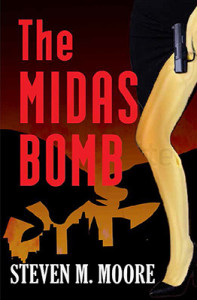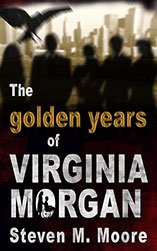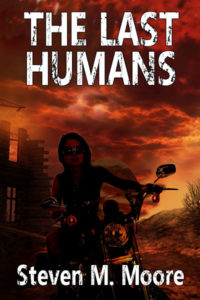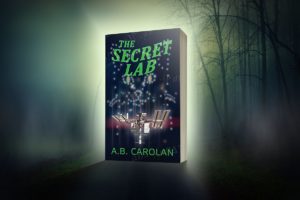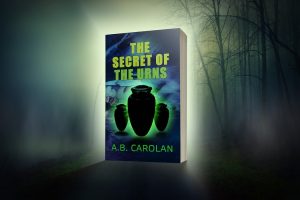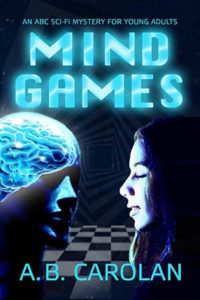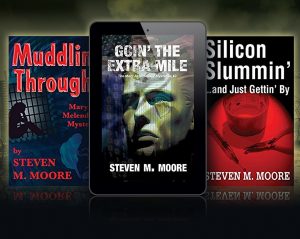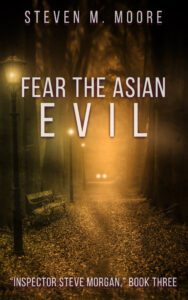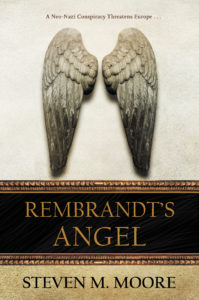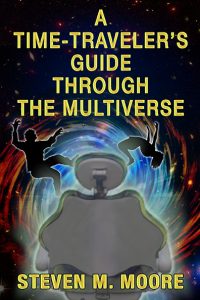The “divine feminine”?
June 28th, 2023 Dan Brown made the phrase “divine feminine” famous in his Da Vinci Code. (My Son of Thunder does the same a bit more realistically.) But anti-machismo story lines have traditionally been rare in fiction. (I’ll give Dan the credit for trying to change that.)
Dan Brown made the phrase “divine feminine” famous in his Da Vinci Code. (My Son of Thunder does the same a bit more realistically.) But anti-machismo story lines have traditionally been rare in fiction. (I’ll give Dan the credit for trying to change that.)
From Bond to Solo, Reacher, and Rhyme, male detectives and PIs have dominated mysteries and thrillers. Sean Connery, Harrison Ford, Tom Cruise, Denzel Washington, and other Hollywood hunks strove to project their macho allure to worshipping women by playing their signature roles. I suppose it makes sense: Men throughout history have erroneously thought they determine the fate of everything in the world, and that includes entertainment.
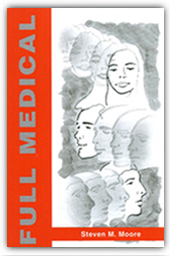 Early on in my sci-fi stories, I created a future where women had as many principal roles as men, if not more. So it was natural when I began writing mysteries and thrillers (the first was The Midas Bomb where Chen and Castilblanco are the principal characters) that women starred as much as or more than men. And that continued throughout my oeuvre!
Early on in my sci-fi stories, I created a future where women had as many principal roles as men, if not more. So it was natural when I began writing mysteries and thrillers (the first was The Midas Bomb where Chen and Castilblanco are the principal characters) that women starred as much as or more than men. And that continued throughout my oeuvre!
I’ve admired smart, strong women for a long time, even before my first novel Full Medical, which features several of them. They see things differently compared to men, especially compared to those male characters who are stereotypically macho men filled with excess testosterone. Lincoln Rhyme tones that down a bit (or maybe Deaver thinks his character appeals to the mothering instincts of women?), but not much, especially when Denzel portrays Rhyme in the corresponding movies.
“Enough of that!” I said to myself long ago. “Fiction must reflect reality, and the reality is that the world would probably be a much better place if men paid more attention to women or women were in charge.” (Not ones like Keri Lake, of course, who are just imperfect clones of bad-acting testosterone-filled thugs.)
 In both my series and stand-alone novels (seven of the former, without counting A. B. Carolan’s), either the principal characters are female or they share the stage with males. Some will say that’s silly on my part because men rule, but I can counter that perception with many arguments. If you force me to stick to the commercial viability of my books, let me only say that women read a lot more than men! It’s hard for me to believe that they’re only interested in reading about macho hunks. (I’m ignoring romance and erotic novels. Their audience is primarily female.) I believe women want to see female principals in sci-fi, thriller, and mystery novels. They can’t all be interested in those macho-male heroes!
In both my series and stand-alone novels (seven of the former, without counting A. B. Carolan’s), either the principal characters are female or they share the stage with males. Some will say that’s silly on my part because men rule, but I can counter that perception with many arguments. If you force me to stick to the commercial viability of my books, let me only say that women read a lot more than men! It’s hard for me to believe that they’re only interested in reading about macho hunks. (I’m ignoring romance and erotic novels. Their audience is primarily female.) I believe women want to see female principals in sci-fi, thriller, and mystery novels. They can’t all be interested in those macho-male heroes!
But that’s all mostly beside the point. I, as an author and a reader. want to see more female protagonists. In my life, I’ve admired a lot more women than men at work and in my social interactions (especially when I used to participate in book events—men are rarely seen there unless a woman has forced a man to accompany them). The human feminine might not be divine, but women are also often a lot more interesting and more competent than men…at all levels! Let’s celebrate them in our fiction!
***
Comments are always welcome. (Please follow the rules on the “Join the Conversation” web page.)
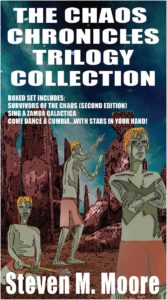 Four strong, smart women. Dao-Ming Chen, Jenny Wong, Mary Jo Melendez, and Penny Castro have principal roles in the “Chen and Castilblanco,” “Chaos Chronicles,” “Mary Jo Melendez,” and “The Last Humans” series. You can meet them all by starting with the first books in each series, respectively: The Midas Bomb, Survivors of the Chaos (although that has a second edition in the ebook bundle of the entire “Chaos Chronicles” trilogy), Muddlin’ Through, and The Last Humans. Readers will find enough action, suspense, mystery, and thrills in these ebooks to last their entire summer and into the fall. And yes, there’s romance as well! (Some of these novels are on sale during June at the Smashwords store.) Enjoy!
Four strong, smart women. Dao-Ming Chen, Jenny Wong, Mary Jo Melendez, and Penny Castro have principal roles in the “Chen and Castilblanco,” “Chaos Chronicles,” “Mary Jo Melendez,” and “The Last Humans” series. You can meet them all by starting with the first books in each series, respectively: The Midas Bomb, Survivors of the Chaos (although that has a second edition in the ebook bundle of the entire “Chaos Chronicles” trilogy), Muddlin’ Through, and The Last Humans. Readers will find enough action, suspense, mystery, and thrills in these ebooks to last their entire summer and into the fall. And yes, there’s romance as well! (Some of these novels are on sale during June at the Smashwords store.) Enjoy!
Around the world and to the stars! In libris libertas!

